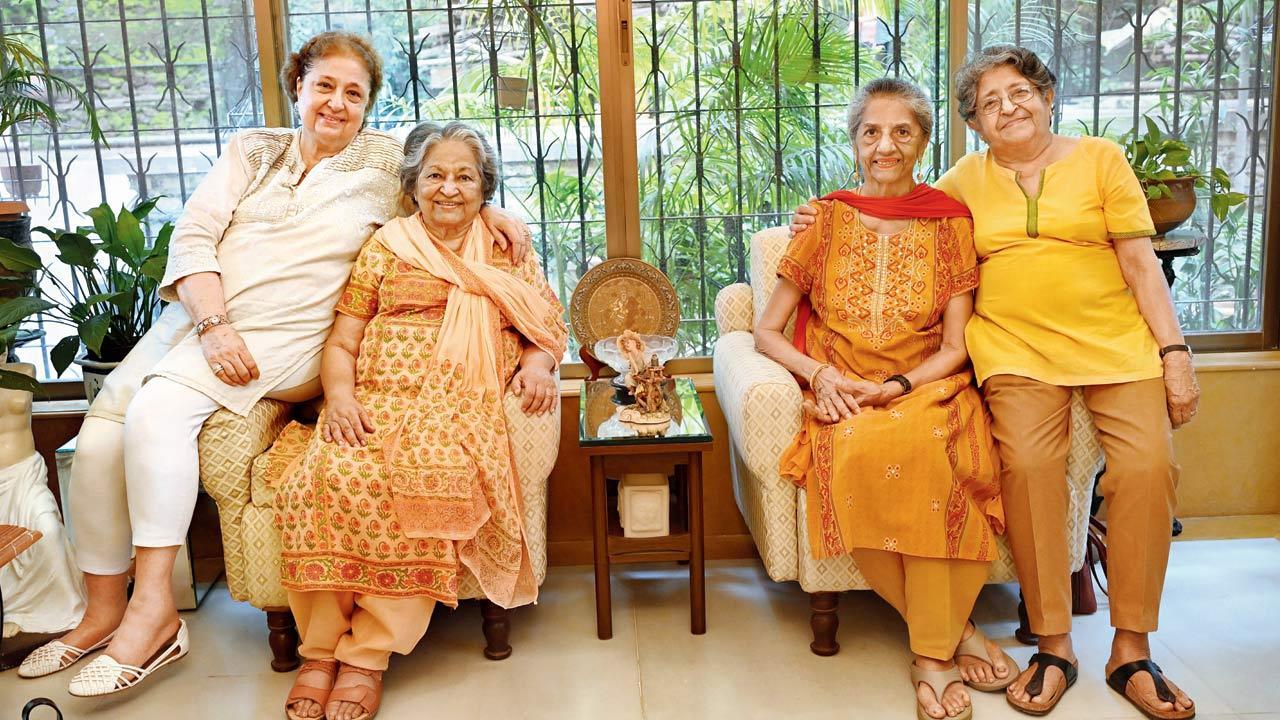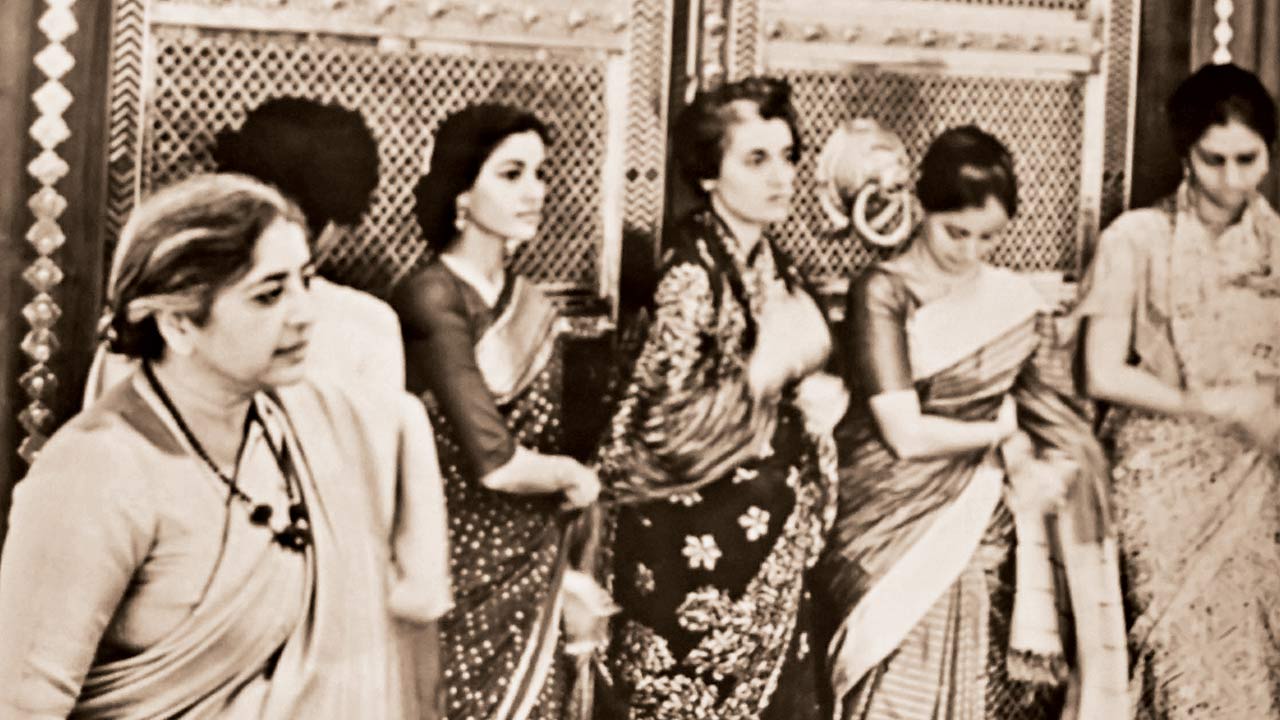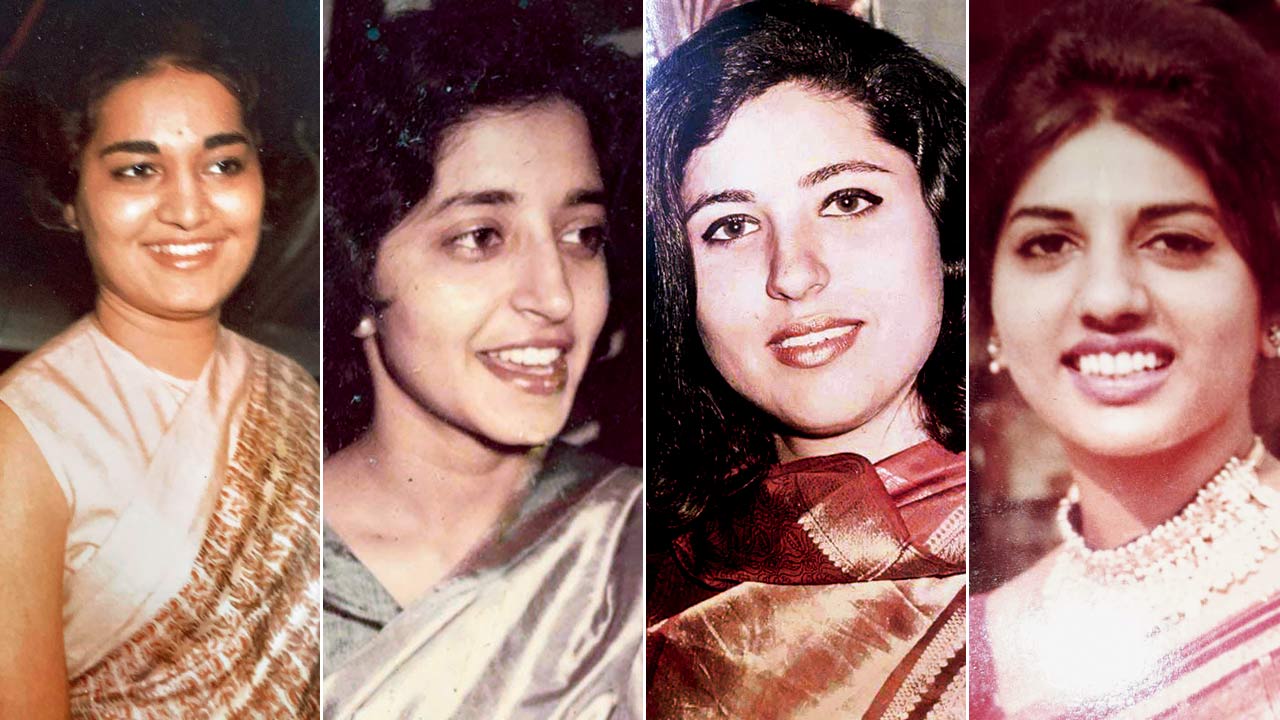Four women from the contingent representing India at the 1964 New York World Fair recall how they forged bonds that stay strong

Meher Amersey, Ateka Ziauddin, Uttara Parikh and Meena Bhat at Amersey’s home. Pics/Kirti Surve Parade
 Meena Bhat, 85, retired language and music teacher
Meena Bhat, 85, retired language and music teacher
ADVERTISEMENT
Uttara Parikh, 83, former Air India deputy commercial director
Ateka Doctor, 83, former librarian and teacher
Meher Amersey, 80, former airline and hotel professional
Bombay girls in their early twenties when another great city of the world threw them together, Meena Lele, Uttara Shah, Ateka Ziauddin and Meher Tata represented India at the New York World Fair in 1964. They were four of the 14 accomplished women forming the country’s contingent, invited to celebrate 300 years since the founding of that iconic city (the British seized New Amsterdam from the Dutch in 1664, renaming it New York).
 Pupul Jayakar and Indira Gandhi outside the India Pavilion at the 1964 fair
Pupul Jayakar and Indira Gandhi outside the India Pavilion at the 1964 fair
The mega event stretched over eight eventful months. With “Peace Through Understanding” as its theme and 69 international participants, the fair was opened by President Lyndon Johnson at the Unisphere. The giant globular emblem rose 140 feet in the air, ringed with orbits of satellites, implying “a shrinking world in an expanding universe”. The India Pavilion, covering 28,000 square feet, aimed to showcase “Progress in Democracy”. Illustrated with detailed photographs, charts, books and exhibit models, it drew visitors from across the world, impressed to witness the changing face of the country’s technological advances—via hydro-electric projects, atomic energy achievements, major steel units and a gamut of machine manufacturing industries.
Proud cultural ambassadors in New York, exactly six decades after they returned in October 1964, the four friends reminisce on the fair that forged a forever friendship.
• • •
Meena Bhat: It was the most memorable experience bringing us together. Before we embarked for New York, there was a month’s training in Delhi and the lectures there were rather interesting. Indira Gandhi spoke. Pupul Jayakar talked about textiles. The British feminist Freda Bedi, Kabir’s mother who became a nun after having her children, addressed us on Buddhism. Because the theme of our Pavilion was “Progress in Democracy”, we were grounded with a reasonable understanding of India’s achievements through her three Five-Year plans. I was assigned to speak about Rolls Royce engines, among various other subjects.
Uttara Parikh: We were interviewed in Delhi by Bobby Kooka of Air India, SN Chib the first Director-General of the Department of Tourism, and diplomats like BK Nehru, along with other officials from the Ministry of International Trade and the Foreign Department.
Ateka Doctor: I was in Edinburgh for a post-graduate diploma in administrative law and applied to be considered for the fair on the last day for entries. Being called to Delhi was a surprise honour. We were there from March to October that year, working eight-hour shifts. It was nice interacting with participants from such different nationalities.
Meher Amersey: Chester Bowles was the US ambassador here at the time. The training of the Indian contingent entailed a knowledge of our beautiful philosophy, architecture, folk music, everyday customs and industrial achievements, showcasing a dynamic, developing India. The fair opened in April in Flushing Meadows.
 The four friends in younger days: Ateka Ziauddin Doctor, Meena Lele-Bhat, Meher Tata-Amersey and Uttara Shah-Parikh
The four friends in younger days: Ateka Ziauddin Doctor, Meena Lele-Bhat, Meher Tata-Amersey and Uttara Shah-Parikh
MB: Living in studio apartments in Queens, two subway stops from the India Pavilion, we could orient ourselves from the Unisphere
surrounded by fountains. Each of us had four lovely silk sarees to wear on duty.
AD: Extremely conscious of how to project India abroad, we took seriously the responsibility of explaining our diverse culture and traditions. The trade ministry had advertised nationwide in The Times of India for guides serving as stall attendants in the India Pavilion, to answer questions and explain exhibits.
MB: Our main guide was Natwar Singh, who later left the Foreign Service and entered politics. He would drive us around New York in a swanky Mercedes. A fascinating site visit was to the UN General Assembly and Security Council.
UP: We tasted wonderful global cuisines. Gaylord restaurant was attached to our Pavilion. It provided dinner but the rest of the meals we had to learn to cook in our own kitchenettes. It was incredible fun going to great concerts to hear cult singers of the day like Harry Belafonte, Ella Fitzgerald and Joan Baez. We entered free, with our staff IDs.
MB: Speaking of entertainers. Dev Anand came to the fair and took everyone to the Playboy Club.
MA: Ah, how can we forget to mention that. Good times, bad times… Receiving news of Pandit Nehru’s death in May, all
the Indians burst out crying. Anyway, our job done, we were back home to work and we got married. Life grew busy with new responsibilities. We couldn’t stay as closely in touch. I joined Air India and then Czechoslovak Airlines’ Bombay office. Following that, it was the sales and marketing department of the Taj under Camellia Panjabi, who introduced promotion of products on a grand scale in the hotel; the first garment and jewellery fairs were her idea. I took up bridge and golf, and still enjoy bridge.
MB: Soon after getting to Bombay, I married and left with my family for Germany and, briefly, the US. Returning, I spent 20 years in Bangalore teaching German, music and English. Back in Bombay, I taught in schools and was happy catching up with Meher, Uttara and Ateka.
UP: After New York, I was appointed Manager of the Taj Art Gallery which I set up and ran for nearly three years. Next came Air India’s publicity department, where I retired as Deputy Commercial Director. We had an art studio and were the face of Air India, in charge of hoardings, ads, posters and exhibitions, promoting our Maharaja mascot. We built up an art collection of 8,000 items. There were also the famous 500 limited-edition Salvador Dali-designed ashtrays, for which his fee was a baby elephant delivered to Spain. The award-winning Flying Returns loyalty programme was my initiative.
AD: Uttara and I were Queen Mary’s schoolmates. She won the Bombay University political science trophy a year ahead of me doing so. Home from New York, I took up a job at the University Library and taught in school. Once married, I involved myself in social work.
MB: Meher and I were in the same school. She was naughty, a real rascal. An excellent athlete, though, holding the inter-school shot put championship. She’s someone you can depend on, always so hospitable and generous.
MA: Our Meena was a “chhupi Rustom”. Her many admirers were to be seen hanging around in New York too.
MB: Ha, you remember! And Ateka is a very sincere person, active in her Queen Mary’s School alumni group as well as the Bohri community. The affection Uttara and I have for each other, being on the same floor in New York and the same shift, continues today. She has the ability to charm and is a great organiser.
AD: To commemorate the fortieth anniversary of our trip, Uttara put together an album and got in touch with more of the “guides”. Newspaper reports with headlines like “Chaalis saal baad” reported on our unique Ruby Reunion.
MA: That we look forward to meeting is something to celebrate, considering age-related health issues. A friendship lasting sixty years is truly beyond precious, granted to the fortunate few.
Author-publisher Meher Marfatia writes monthly on city friendships. You can reach her at [email protected]/www.meher marfatia.com
 Subscribe today by clicking the link and stay updated with the latest news!" Click here!
Subscribe today by clicking the link and stay updated with the latest news!" Click here!







